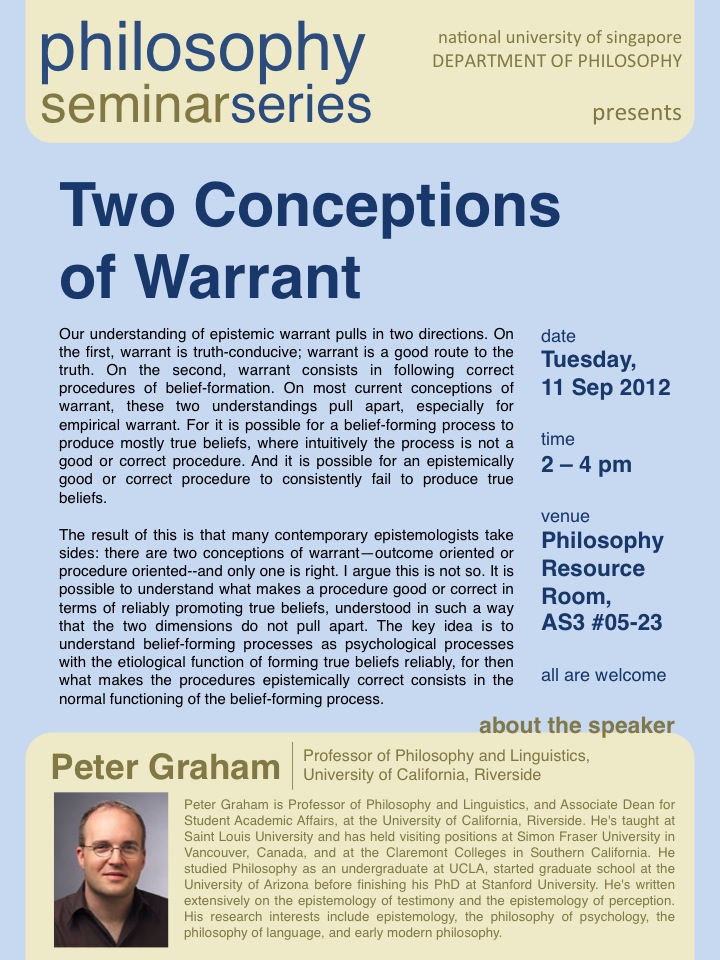Our understanding of epistemic warrant pulls in two directions. On the first, warrant is truth-conducive; warrant is a good route to the truth. On the second, warrant consists in following correct procedures of belief-formation. On most current conceptions of warrant, these two understandings pull apart, especially for empirical warrant. For it is possible for a belief-forming process to produce mostly true beliefs, where intuitively the process is not a good or correct procedure. And it is possible for an epistemically good or correct procedure to consistently fail to produce true beliefs.
The result of this is that many contemporary epistemologists take sides: there are two conceptions of warrant—outcome oriented or procedure oriented–and only one is right. I argue this is not so. It is possible to understand what makes a procedure good or correct in terms of reliably promoting true beliefs, understood in such a way that the two dimensions do not pull apart. The key idea is to understand belief-forming processes as psychological processes with the etiological function of forming true beliefs reliably, for then what makes the procedures epistemically correct consists in the normal functioning of the belief-forming process.
Philosophy Seminar Series.
Date: Tuesday, 11 Sep 2012
Time: 2pm – 4pm
Venue: Philosophy Resource Room (AS3 #05-23)
Speaker: Peter Graham, Professor of Philosophy and Linguistics, University of California, Riverside
Moderator: Dr. Neil Sinhababu
 About the Speaker: Peter Graham is Professor of Philosophy and Linguistics, and Associate Dean for Student Academic Affairs, at the University of California, Riverside. He’s taught at Saint Louis University and has held visiting positions at Simon Fraser University in Vancouver, Canada, and at the Claremont Colleges in Southern California. He studied Philosophy as an undergraduate at UCLA, started graduate school at the University of Arizona before finishing his PhD at Stanford University. He’s written extensively on the epistemology of testimony and the epistemology of perception. His research interests include epistemology, the philosophy of psychology, the philosophy of language, and early modern philosophy.
About the Speaker: Peter Graham is Professor of Philosophy and Linguistics, and Associate Dean for Student Academic Affairs, at the University of California, Riverside. He’s taught at Saint Louis University and has held visiting positions at Simon Fraser University in Vancouver, Canada, and at the Claremont Colleges in Southern California. He studied Philosophy as an undergraduate at UCLA, started graduate school at the University of Arizona before finishing his PhD at Stanford University. He’s written extensively on the epistemology of testimony and the epistemology of perception. His research interests include epistemology, the philosophy of psychology, the philosophy of language, and early modern philosophy.
